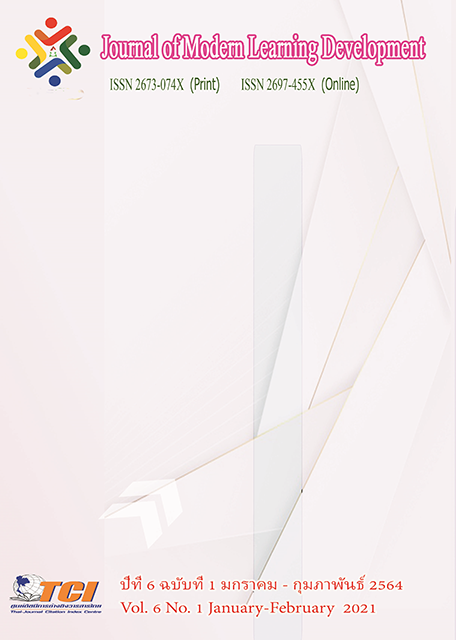The Guidelines of Academic Administration According the Four Main Contribution Dhammas of School Administrators Under Kalasin Primary Educational Service Area Office 2
Main Article Content
Abstract
The objectives of this research paper were: to study the guidelines of academic administration according to the Four Iddhipāda Dhammas (Paths of Accomplishment) of the school administrators under Kalasin Primary Educational Service Area Office 2; to present the guidelines of academic administration according to the Four Iddhipāda Dhammas (Paths of Accomplishment) of the school administrators. This study was conducted by means of mixed method research. The samples of this research included 320 school administrators and teachers. Interview form 9 people.
The research results were as follows:
The overall mean score of the guidelines of academic administration according to the Four Iddhipāda Dhammas of the school administrators under Kalasin Primary Educational Service Area Office 2 was at a high level of practice (=4.38 S.D. = .54). Considering the studied aspects, all shows the mean score at a high level of practice. These include curriculum management, teaching and learning management, measurement and internal education, academic personnel development, and supervision in educational institutions.
The guidelines of academic administration according to the Four Iddhipāda Dhammas are as follows: 1) the administrators apply the rules and regulations of the course administration with fairness, taking into account the rights and liberties of subordinates and service recipients (Vīmaṁsā); 2) the administrators formulate a systematic academic and learning management plan with clear strategic directions and objectives continuously (Vīmaṁsā); 3) administrators have a systematic operating process and system to monitor, evaluate and improve (Viriya); 4) administrators prepare academic documents to support the assessment or educational supervision, which is updated, transparent and verifiable (Citta); 5) administrators plan to build or produce quality academic staff by mainly listening to the public's voice in the selection of personnel for self-development (Vīmaṁsā).
Article Details
References
กรมวิชาการ. กระทรวงศึกษาธิการ. (2545). หลักสูตรการศึกษาขั้นพื้นฐาน พุทธศักราช 2542 และที่แกไขเพิ่มเติม (ฉบับที่ 2) พุทธศักราช 2545. กรุงเทพมหานคร: องค์การรับส่งสินค้าและพัสดุภัณฑ์ ร.ส.พ.
จิรายุ เกื้อทาน. (2559). “การบริหารงานวิชาการตามหลักอิทธิบาท 4 ในสถานศึกษาขั้นพื้นฐาน สังกัดสำนักงานเขตพื้นที่การศึกษาประถมศึกษาหนองคาย เขต 1”. วิทยานิพนธ์พุทธศาสตรมหาบัณฑิต สาขาวิชาพุทธบริหารการศึกษา. บัณฑิตวิทยาลัย: มหาวิทยาลัยมหาจุฬาลงกรณราชวิทยาลัย.
บุญชม ศรีสะอาด. (2554). การวิจัยเบื้องต้น. (พิมพ์ครั้งที่ 9). กรุงเทพมหานคร: สุวีริยาสาสน์.
พระธรรมโกศาจารย์ (ประยูรธมฺมจิตฺโต). (2551). พุทธวิธีบริหาร. กรุงเทพมหานคร: โรงพิมพ์มหาจุฬาลงกรณราชวิทยาลัย.
พระธรรมปิฎก (ป.อ. ปยุตโต). (2542). พุทธธรรม. (พิมพ์ครั้งที่ 8). กรุงเทพมหานคร: โรงพิมพ์มหาจุฬาลงกรณราชวิทยาลัย.
วิจิตร ศรีสอ้าน และคณะ. (2548). หลักการ แนวคิด ทฤษฎีทางการบริหาร. 2548. ออนไลน์. สืบค้นเมื่อ 20 เมษายน 2563.แหล่งที่มา: http://members.thai.net/intira/article theorymgr 01. Html.
สำนักงานเลขาธิการสภาการศึกษา. แผนการศึกษาแห่งชาติ พ.ศ. 2560-2579. กรุงเทพมหานคร: พริกหวานกราฟฟิค, 2560.


